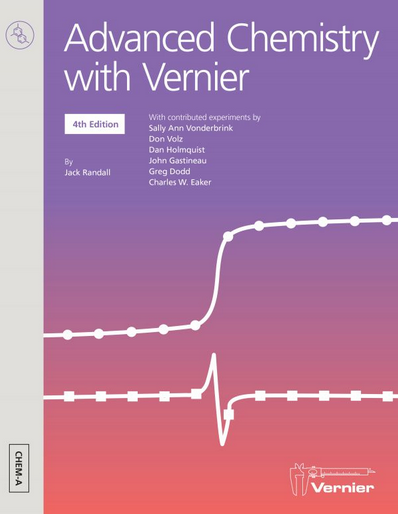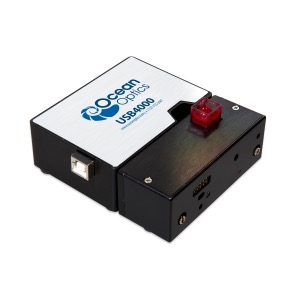Data logging
What is a data logger?
A data logger is essentially a piece of equipment that records electronic signals at pre-set intervals over a period of time. Data loggers are being increasingly used in society as a whole, for example, to monitor traffic, to monitor wind speed, temperature and humidity in unattended weather stations and in environmental monitoring units to measure pollution levels. For experiments in a school laboratory a data logger can be seen as a device to measure the independent or dependent variables electronically and record and store the data. There are two real advantages to using data loggers. One is when a large number of readings are required in a short space of time. For example, in fast reactions 100 readings can be recorded each second - this would be impossible to do mIB Docs (2) Teamally. The second advantage is for reactions that take a long period of time. For example, a data logger could be used to record the pH of the water in a river with readings being taken every hour for several days at a time. Data loggers can of course also be used to take and record readings that could also be done easily mIB Docs (2) Teamally such as measuring pH changes during a titration.
IB requirement
The IB requires students to use data logging in an experiment at least once during their 40 h (SL) or 60 h (HL) practical scheme of work. It may be used in any experiment including the Individual Scientific Investigation, the Group 4 project and experiments covering the mandatory areas but the use of data loggers as such does not have to be assessed. All that is actually required is that the experiment(s) where a data logger was/were used is/are recorded in the correct way by placing a 1 in the ICT column against the experiment(s) on the form 4/PSOW.
Use of data loggers
You should read the rather short section on data loggers in the Teacher Support Material available from the OCC. Raw data is defined as any data produced by the software and extracted by the student from tables or graphs to be subsequently processed by the student. The student’s contribution to the experiment should be evident and normally the student should decide upon and then input most of the relevant software settings. Data logging software that automatically determines the various settings and generates the graphs is normally inappropriate but might have its uses in the Individual Scientific Investigation or the Group 4 Project. Students should be responsible for annotating the data correctly, labelling the axes, carrying out extrapolations and determining associated uncertainties etc.
Types of data loggers
 There are several different types of data loggers available for use in schools. Most schools either use Vernier or Pasco but there are other (sometimes cheaper) alternatives such as the kit from Phillip Harris. It is not necessary to buy a data logger for each student. It is not even necessary for the Chemistry Department to have their own set of data loggers as they can be shared with the other science subjects.
There are several different types of data loggers available for use in schools. Most schools either use Vernier or Pasco but there are other (sometimes cheaper) alternatives such as the kit from Phillip Harris. It is not necessary to buy a data logger for each student. It is not even necessary for the Chemistry Department to have their own set of data loggers as they can be shared with the other science subjects.
You can buy (or download an electronic version) details for many Chemistry experiments using data loggers from Vernier (see left). Most of these were devised to meet the requirements of the US Advanced Placement (AP) programme but many are also suitable for IB Chemistry. If you do use any of them though make sure that there is sufficient input from the student and that they are not just completing boxes or following detailed instructions to arrive at results.
What is useful is to be able to use several different types of probes connected to the data logger. This will give students the freedom to design their own experiments. There are in fact more than fifty different types of probe or sensors that you can connect to the data logger.
Useful probes to consider might include:
pH sensor
temperature probe
light sensor
conductivity probe
dissolved oxygen probe
colorimetry
salinity sensor
A special type of data logger
 Different schools will have different amounts of money to spend. A colorimetry probe will enable your students to produce calibrations curves and determine unknown concentrations of coloured substances relatively cheaply but is of course limited to certain fixed wavelengths. If you can afford it I would recommend purchasing an Ocean Insight minispectrometer. These are highly portable miniature UV/VIS spectrometers which are not much bigger than the single cuvette you insert into them and then they link directly to a laptop or to a data logging device. They will enable students to do very accurate work on mainly visible spectrometry and they can produce some really excellent results for Extended Essays or Individual Scientific Investigation research questions.
Different schools will have different amounts of money to spend. A colorimetry probe will enable your students to produce calibrations curves and determine unknown concentrations of coloured substances relatively cheaply but is of course limited to certain fixed wavelengths. If you can afford it I would recommend purchasing an Ocean Insight minispectrometer. These are highly portable miniature UV/VIS spectrometers which are not much bigger than the single cuvette you insert into them and then they link directly to a laptop or to a data logging device. They will enable students to do very accurate work on mainly visible spectrometry and they can produce some really excellent results for Extended Essays or Individual Scientific Investigation research questions.
If you are strapped for cash then Alexander Scheeline at Illinois University has developed a free programme which you can download that enables you to convert a cell phone into a spectrometer. Pasco also makes a very user-friendly spectrometer.
![]() Pasco quick start spectrometer
Pasco quick start spectrometer
Wireless sensors
Pasco have introduced a new range of relatively cheap wireless sensors that avoid the need for wires everywhere. One of the great advantages of this is that it enables multi-measurement. This means for example that a student can not only follow a measurement related to the dependent variable but can also monitor the controlled variables. For example, in a kinetics reaction not only can the change in concentration of product or reactant be followed but the student can also confirm whether or not the temperature of the reaction is remaining constant as it is often the case that the temperature does change during the reaction. The wireless sensors are demonstrated and explained in this video by Pasco.
![]() PASCO wireless sensors: Getting started with SPARKvue
PASCO wireless sensors: Getting started with SPARKvue

 IB Docs (2) Team
IB Docs (2) Team